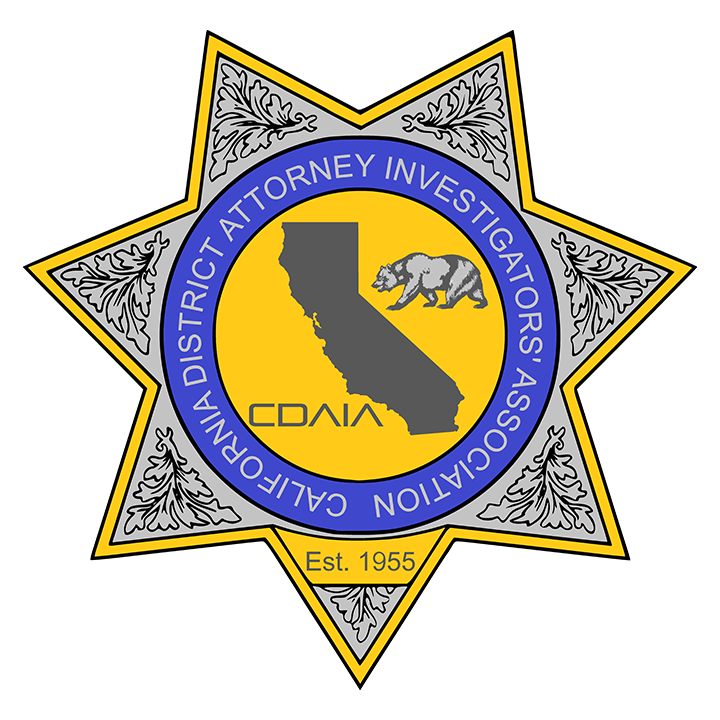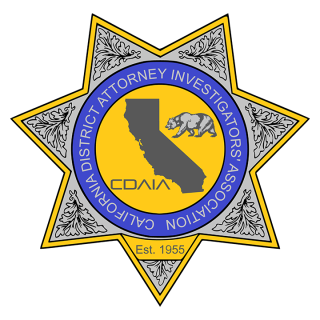DEFINITION
Under immediate to general supervision, to plan, organize, conduct, and coordinate investigations originating with or referred to the District Attorney’s Office; and to do related work as required.
REPORTS TO
The District Attorney, Chief District Attorney Investigator and/or assigned professional legal staff.
CLASSIFICATIONS SUPERVISED
This is not a supervisory class. However, incumbents may be assigned lead direction and work coordination responsibilities for support staff as needed.
Examples of Duties
- Assists in obtaining, preserving and reporting admissible evidence for presentation in cases prosecuted by the District Attorney’s Office
- Performs difficult criminal and civil investigations for the District Attorney’s Office, Sheriff’s Office, Municipal Police Agencies, and the Grand Jury; and performs related work as required
- Conducts field investigations, surveillances; searches crime scenes; interviews and interrogates complainants, suspects, witnesses, and other persons to obtain statements, documents, and related factual evidence
- Assists attorneys in the preparation and presentation of cases during court or Grand Jury proceedings
- Serves subpoenas; coordinates the appearance of witnesses at trial and explains court procedures
- Testifies in court and other legal proceedings regarding evidence and investigative findings
- Investigates the personal background of complainants, suspects, witnesses, and employee applicants
- Arrests suspected criminals; writes and serves search/arrest warrants, and other court processes
- Operates technical investigative equipment such as audio recorders, cameras, and electronic sound equipment
- Acts as a liaison and coordinates investigative activities with law enforcement officers from various agencies
- May plan and conduct more difficult and complex criminal, civil and special investigations for the District Attorney’s Office, Sheriff’s Department, Municipal Police Agencies the Grand Jury; gathers, preserves, and analyzes evidence and prepares reports
- May be required to work on call and be available evenings, weekends, and nights
- May be exposed to hostile witnesses and hazardous or stressful situations during the course of completing assignments
Typical Qualifications
- Experience: Two years of criminal investigative experience, in a sworn status, in a civilian governmental law enforcement agency which included as a primary responsibility the performance of field investigations or seven years of patrol experience
- The required knowledge, skills and abilities also can be obtained by completion of a Bachelor’s degree in criminal justice or a related field; formal training in the California Rules of Evidence and in evidence accumulation and presentation at trial and at least two (2) years of criminal investigation experience in a government law enforcement agency
- Must possess a valid California driver’s license
- Possession of a valid Intermediate P.O.S.T. Certificate defined by 830.1 is minimally required
- Must be at least twenty-one (21) years of age
- Training: Must have completed the training requirements specified in California Penal Code Section 832(a) or be exempt from such training by virtue of California Penal Code Sections 832(d) (such training deals with the exercise of power to arrest, and the use and care of firearms)
- Attach a legible copy of your Basic, Intermediate, Advanced, and/or Supervisory California P.O.S.T. certificate
- Some (I) to considerable (II) knowledge of the: substantive and procedural California Criminal, Civil, and Juvenile laws, and the modern techniques and practices of criminal investigation; laws of arrest, search and seizure, warrant and subpoena service, rules of evidence, and the admissibility of confessions and witnesses’ statements; functions and extent of authority of the District Attorney’s Office; resources and techniques available in public and private criminal scientific laboratories and the latest medical-legal techniques in criminal investigation
- Skill and ability to: gather, analyze, correlate and evaluate observed facts and evidence; ability to establish and maintain effective relations with members of the office, other agencies, the law enforcement community, and the public, including community policing, collaborative problem-solving and identifying/avoiding bias; to effectively communicate verbally and in writing
- Ability to: have accurate recall of investigated witnesses and situations; use good judgment and maintain a high level of mental alertness in the course of completing assigned work
- Knowledge and ability to read and comprehend various written materials including legal documents
- Knowledge, skill, and ability to operate vehicles and electronic equipment
- Knowledge, skill and ability in the use and care of firearms
- Knowledge of community-based policing and collaborative problem-solving between community residents and law enforcement
- MEDICAL/PSYCHOLOGICAL EXAMINATIONS: In accordance with Government Code Section 1031, candidates who receive a conditional job offer will have their physical, emotional, and mental health evaluated and must be free from any condition which might adversely affect the exercise of the powers of a peace officer or performance of the duties of this position
Supplemental Information
The contents of this class specification shall not be construed to constitute any expressed or implied warranty or guarantee, nor shall it constitute a contract of employment. The County of Mono assumes no responsibility beyond the general accuracy of the document, nor does it assume responsibility for any errors or omissions in the information contained herein. The contents of this specification may be modified or revoked without notice. Terms and conditions of employment are determined through a “meet and confer” process and are subject to the Memorandum of Understanding currently in effect.

